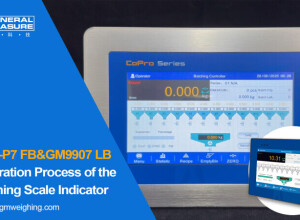[Article]: Revolutionizing Transportation: The Transformative Impact of GPS Tracking Technology
GPS tracking technology has become a cornerstone of modern transportation systems, reshaping the way fleet and logistics operations are managed. Far from being a simple tool for locating vehicles, GPS tracking has evolved into a comprehensive solution that enhances operational efficiency, reduces costs, improves safety, and supports environmental sustainability.
Financial Benefits and Cost Efficiency
One of the most compelling advantages of GPS tracking is its financial return. Companies using advanced GPS fleet tracking systems report average annual savings of $5,484 per driver, with up to 30% reductions in fuel costs and productivity increases of 40%. These gains result from optimized routes, reduced idle times, and better oversight of driver activity.
The potential industry-wide impact is staggering. If adopted across the entire U.S. trucking sector, GPS tracking could save up to $53 billion in fuel annually. Companies have also noted reductions in weekly travel distances, contributing to tens of thousands in yearly fuel savings per organization. For many, the return on investment (ROI) is realized quickly, with 75% seeing positive ROI within the first year and 40% within just six months.
Enhancing Safety and Driver Oversight
Beyond savings, GPS tracking significantly improves fleet safety. Integrated telematics monitor driving behaviors such as speeding, harsh braking, and rapid acceleration. This data enables managers to correct unsafe driving habits before they lead to accidents.
GPS tracking also streamlines vehicle maintenance. Digital systems create automated service schedules based on mileage or usage, reducing the risk of breakdowns and ensuring safer road conditions. These safety improvements lower insurance costs, as many insurers offer reduced premiums to fleets with GPS-enabled risk mitigation practices.
Real-Time Routing and Operational Visibility
GPS technology revolutionizes the planning and management of routes. Real-time data allows dispatchers to dynamically adjust routes in response to traffic, weather, and other variables. This flexibility reduces delays, shortens delivery windows, and increases customer satisfaction.
Last-mile delivery, a costly and complex segment of logistics, benefits immensely. With GPS optimization, companies can reduce fuel usage and idle time while boosting delivery accuracy. Enhanced tracking also improves load planning and vehicle utilization.
Environmental Sustainability
With the transportation sector contributing around 24% of global greenhouse gas emissions, GPS tracking is a vital tool in the push toward sustainability. By optimizing routes and monitoring driving behavior, companies can lower fuel consumption and reduce their carbon footprint.
Proper vehicle maintenance, supported by GPS alerts, further enhances fuel efficiency. Real-time insights also enable managers to guide drivers toward more eco-friendly habits, reducing fuel waste caused by aggressive driving. These improvements align with corporate environmental goals and regulatory expectations.
Improving Supply Chain and Logistics Operations
GPS tracking boosts transparency and responsiveness throughout the supply chain. Managers can monitor shipments in real time, anticipate disruptions, and provide accurate delivery updates. These capabilities are especially crucial for industries such as pharmaceuticals and food distribution, where timing and handling are critical.
The integration of GPS with logistics systems allows for smarter fleet assignments, cost-benefit analysis, and proactive issue resolution. Companies gain competitive advantages through faster delivery, reduced costs, and better coordination among partners.
Customer Service Enhancements
Customer expectations are higher than ever, and GPS tracking helps meet them. With real-time updates and delivery tracking, businesses can offer more accurate arrival estimates and communicate proactively about delays. This transparency builds trust and reduces the volume of customer service inquiries.
GPS data also provides proof of delivery through time-stamped coordinates, helping resolve disputes and improve accountability. By streamlining administrative processes and enabling automated notifications, GPS systems enhance the overall customer experience.
Technological Integration and Future Outlook
GPS tracking continues to evolve with emerging technologies like AI, machine learning, and IoT. These integrations offer even greater optimization potential, with AI-powered route planning yielding up to 30% fuel savings by analyzing patterns and adapting in real time.
Fleet managers benefit from centralized dashboards that combine insights on fuel use, vehicle performance, maintenance, and driver behavior. As businesses transition to electric vehicles, GPS platforms are adapting to monitor battery levels, charging cycles, and range optimization.
Conclusion
GPS tracking has firmly established itself as a transformative force in transportation. Its benefits extend across financial savings, safety improvements, environmental responsibility, and customer satisfaction. With average annual savings of thousands per driver and ROI achieved within months, GPS technology offers an unmatched value proposition.
As the technology integrates with AI and IoT, its capabilities will continue to expand. Transportation businesses that adopt GPS tracking not only improve their current operations but also position themselves for long-term success in a more efficient, sustainable, and competitive future.
Image Attribution:
https://www.pexels.com/photo/white-dump-truck-near-pine-tress-during-daytime-93398/









































Interested? Submit your enquiry using the form below:
Only available for registered users. Sign In to your account or register here.